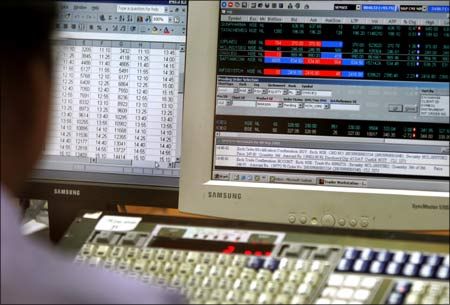 Internet technology and rapid advances in computing power have transformed financial trading radically, says Devangshu Datta
Internet technology and rapid advances in computing power have transformed financial trading radically, says Devangshu Datta
Internet technology and rapid advances in computing power have transformed financial trading radically.
Moore's Law observes that computing power (actually the number of transistors on an integrated circuit) doubles often and that law has held good for over 50 years.
Hence, computer power has seen exponential growth over that time. Modern computers can search huge financial price-volume datasets very quickly for patterns.
The internet allows information to be disseminated at light-speed to widely dispersed persons and the internet also makes it possible for them to trade quickly.
Social media creates yet more tools and platforms for amassing, discussing and disseminating information. (Here, information also includes disinformation, like gossip and rumours).
High-frequency traders (HFT) pay large sums to co-locate into the same premises as exchanges. This gives HFT literally milliseconds of lead time in taking trades.
As a result, HFTs can make a lot of money front-running.
If an HFT algorithm identifies a big buyer or seller, the HFT can pre-empt that party by taking the same position a microsecond earlier for an arbitrage commission.
This kind of trading and jockeying for information creates its own patterns across networks.
There is some evidence that major financial events are often preceded by unusual patterns of behaviour on the internet and in social media. This is logical.
A major trend occurs when the aggregate of all actions taken by participants moves the market a certain way.
Participants trade on the basis of information they possess and they add to, and validate that information.
They typically make searches of certain kinds and discuss possible events and outcomes with associates.
If their patterns of behaviour change in some ways, it may be an early signal of a big trend change.
If there is a spike in certain kinds of traffic before strongly trending price action occurs, it might have predictive value.
It is possible to mine the major social media platforms like Facebook, Twitter, YouTube, Google+ and search engine data for trends. Professional networks like LinkedIn can also be mined less systematically.
Some keywords may turn up often in searches before trading patterns go in a certain direction.
There may also be very high activity in social media groups devoted to discussions of specific business-oriented topics.
The focus here is on long-term trends, which can last for months or years. So, these patterns of behaviour on the Internet will be big-volume and last longer than normal.
Some of this research will be hit or miss and it involves "back-testing" events such as the subprime crisis. There is no telling if future inflection points will be preceded by spikes in similar keywords.
Those who do discover patterns robust enough to be traded are also unlikely to share their insights.
Nevertheless, this sort of information is worth watching out for. It does not hurt to take a quick look at the trends on Google, Facebook and Twitter.
Nor does it hurt to join as many groups as permitted on LinkedIn (50 at last count) and check out trends there.
Big chances in trends are likely to be preceded by unusual activities in these spaces and that activity is likely to be persistent over a fair length of time before the trend reversal occurs.
This activity is also likely to continue even after the trend reversal. So it can be confirmation that a trend is sustainable and long-term.
An individual might not be able to put together the data and number-crunching resources that institutional traders employ.
But thinking smart can compensate. If an individual constantly asks "What could change my mind about the market?" and checks for information that might indicate such a switch in mental gears, the Internet and social media networks can come up trumps.
Photograph: Puneet/Paranjpe/Reuters











 © 2025
© 2025